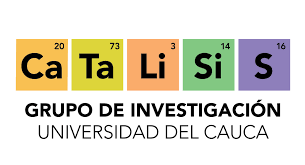News
Research Group in Catalysis Joins Global Recognition of Women and Girls in Science for the Third Year.
The group from the University of Cauca, composed of students and alumni from Chemistry, Environmental Engineering, Agroindustrial Engineering, and Physics Engineering, participated in this event aimed at overcoming gender equality barriers in science
The Catalysis Research Group, affiliated with the Department of Chemistry at the University of Cauca, participated for the third consecutive year in the IUPAC (International Union of Pure and Applied Chemistry) initiative to celebrate the United Nations International Day of Women and Girls in Science. The Global Women’s Breakfast (GWB) took place on February 27 and aims to establish an active network of people of all genders to overcome gender equality barriers in science. Over the past five years, more than 1,500 GWB events have been held in 100 countries.
The theme of GWB2024 was "Catalyzing Diversity in Science," and it organized events with groups from various types of scientific organizations, including high schools, scientific societies, universities, companies, governments, and non-governmental organizations. For this meeting, one of the alumni from the Catalysis Research Group shared her experiences from her undergraduate and master's education with students from the group and the research seedbed.

It is noteworthy that currently, more than 60% of the total members of the group and the research seedbed are women, with active participation from the programs in Chemistry, Environmental Engineering, Agroindustrial Engineering, and Physics. It is expected that in the next edition, this space will be strengthened at the local level to further highlight the role that women have played in the research activities within the same Research Group and at the University of Cauca.
The Research Group in Catalysis has been distinguished in Category A by MinCiencias in its most recent update of recognition and classification of Groups, and is one of the references for the quality of its research, which now includes the use of Artificial Intelligence tools to explore new catalytic routes that enable better reaction conditions for the developed catalysts. Likewise, they are at the forefront of preparing catalytic systems that aim to leave the smallest carbon footprint and also in the valorization of industrial waste, positively impacting environmental aspects that Chemistry, through Catalysis, enables.
For more information:
Faculty of Natural, Exact, and Educational Sciences
Email: facned@unicauca.edu.co


